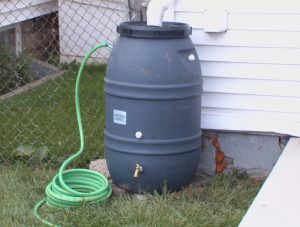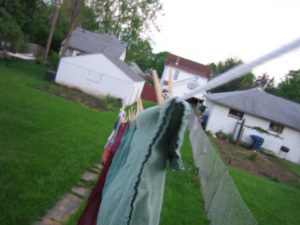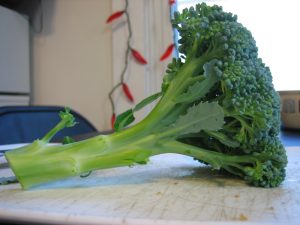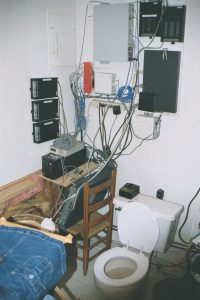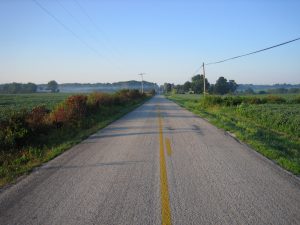 During the Third U.S. Conference on Peak Oil and Community Solutions that I attended last month, I found myself surrounded by an amazing group of hundreds of people who were trying to make changes in the world to move us (the human species) toward sustainability. While I do not limit my thinking on sustainability to the slogan "be the change you want to see in the world" (article on that is forthcoming), I thought it might be useful to take an inventory of the things I'm doing in my own life to reduce my impact on the world and my resource usage in our culture. I also thought it would be important to start to list the areas where I still need to make progress.
During the Third U.S. Conference on Peak Oil and Community Solutions that I attended last month, I found myself surrounded by an amazing group of hundreds of people who were trying to make changes in the world to move us (the human species) toward sustainability. While I do not limit my thinking on sustainability to the slogan "be the change you want to see in the world" (article on that is forthcoming), I thought it might be useful to take an inventory of the things I'm doing in my own life to reduce my impact on the world and my resource usage in our culture. I also thought it would be important to start to list the areas where I still need to make progress.
I don't publish this information as any sort of prescription for anyone else; there are millions of ways to make changes in our lives to do less harm, and not all of them look anything like the below (and some of them contradict the below), so I fully respect that this is what works for me as I experiment, and it may not work for anyone else. There is no one right way to be more sustainable. However, if you find this list useful, or have suggestions or feedback on it, I hope you'll contact me to let me know.
Things I do in my life to reduce my unsustainable resource usage:
- I've created, participate in and financially support multiple community-oriented programs that promote and educate others around messages related to sustainability.
 I have a rain barrel in my yard to collect rainwater for use in gardening and yard work. It reduces the amount of filtered and treated city water I use by just a little bit, but rainwater is also better for my plants.
I have a rain barrel in my yard to collect rainwater for use in gardening and yard work. It reduces the amount of filtered and treated city water I use by just a little bit, but rainwater is also better for my plants.- I mow my yard less than neighborly convention might dictate. I'm working on using a scythe to replace my gas-powered mower (and increase my physical exercise!).
- I replaced the old drafty windows in my house with newer and more sealed ones. This helps reduce the energy needed to keep me comfortable inside. Unfortunately, the replacement windows are made up significantly of petroleum-based products.
- I had a super high-efficiency furnace installed in my house.
- I don't use air conditioning at my house more than 3 or 4 days per year, and use ceiling fans, window shading, and other methods instead. (I do, however, work in an air-conditioned office, so I can't claim to be braving the heat every day.)
- I live in a small town that is easy to get around, has the potential for great community-building, and has a heritage that involves peace and justice, sustainable agriculture and entrepreneurial solutions to difficult problems.
- I've replaced all of the conventional incandescent light bulbs in my house with compact fluorescent bulbs. These are supposed to last much longer and use much less energy.
- I wash my dishes by hand.
- I purchased a high-efficiency front-loading washing machine
 I also purchased a high-efficiency drier, but there really isn't such a thing, so I try to use a clothesline to dry my laundry in the sun when I can.
I also purchased a high-efficiency drier, but there really isn't such a thing, so I try to use a clothesline to dry my laundry in the sun when I can.- I have been working on putting my appliances that use phantom power on power strips that I can turn off when I'm not using them.
- I participate in my city's recycling program
- I compost all organic waste from my cooking and store it in the big compost bin next to my garden.
- I try to buy goods and services from local businesses when possible. This reduces the amount of resources required to bring those items to me, and supports a strong local economy that can be more resilient to fluctuations in energy prices. I especially try not to buy goods and services from businesses that I feel are actively harming local/regional/national natural resources, engaging in slave labor, or participating in the cultural trends toward sacrificing our planet and its lifeforms in the name of increased consumerism.
- I support my local food cooperative by volunteering and serving on their board of directors, and by ordering household staples in bulk from them.
- I try to avoid eating food that will poison my body and potentially increase the resources needed to keep me healthy (now or in the future)
- I avoid buying new products and clothing when I can find them in like-new condition by shopping at Goodwill or the Salvation Army.
- I have installed or am installing low-flow shower heads in my showers.
- I avoid using household chemical products that pollute and cause medical problems
- I ride my bicycle when I have time. Having time to ride a bike is a relative/subjective/complex thing, so I'm working on ways to make more time for riding instead of driving.
- I walk places when I have time. Having time to walk is a relative/subjective/complex thing, so I'm working on ways to make more time for walking.
- When I do drive, I drive a car that gets reasonably high gas mileage (i.e. not an SUV) and I try to minimize my trips.
 I have a garden where I sometimes grow my own food instead of buying it from retailers who have produced it with a variety of chemicals, packaged it with a variety of non-reusable materials, and shipped it from all around the world using a variety of petroleum resources.
I have a garden where I sometimes grow my own food instead of buying it from retailers who have produced it with a variety of chemicals, packaged it with a variety of non-reusable materials, and shipped it from all around the world using a variety of petroleum resources.- I work on sharing tools and equipment with my neighbors when we can.
- At the company I co-own, I direct our management and "human resources" practices to encourage community and sustainability in our business activities.
Things I do in my life that aren't so sustainable, or areas where I could improve (a beginning list...I'm sure this could be quite long if one looked at all the details):
- I live in and contribute to a culture that is inherently unsustainable
- My day job is centered around the use of computers and related electronics equipment , which are some of the most wasteful and energy-intensive products to produce in the world. Their production, usage and disposal is one of the top contributors to environmental pollution, workforce exploitation, and global consumerism in the world.
- I still buy lots of goods and services from non-local businesses, and/or businesses that actively participate in harm against the land or against other people.
- I have too much stuff in my house. Too much stuff means more time and energy spent managing and repairing that stuff, and less time having fun. I need to have more fun and less stuff.
- I don't bike or walk nearly as much as I could if I made more changes to support that lifestyle.
 I don't grow nearly as much food as I could if I made more changes to support that lifestyle.
I don't grow nearly as much food as I could if I made more changes to support that lifestyle.- I still eat foods that poison my body.
- A significant portion of my income helps to fund violence and oppression committed against people around the world.
- I don't put enough energy into being a more active participant in my community - getting to know my neighbors, developing relationships that allow me to give support and get support, etc.
- ...
The adventure of doing all of the above is certainly not reflected in these simple bullet listings. In some cases, they were simple changes that required little or no money or time. Others were significant financial investments or major lifestyle changes. And many are ongoing, where I'm still feeling out the effects of my decisions and still finding ways to do better.
 I’m a journalist, publisher, software developer and entrepreneur with experience as a founder and organizational leader. Work with me or learn more about me.
I’m a journalist, publisher, software developer and entrepreneur with experience as a founder and organizational leader. Work with me or learn more about me.
